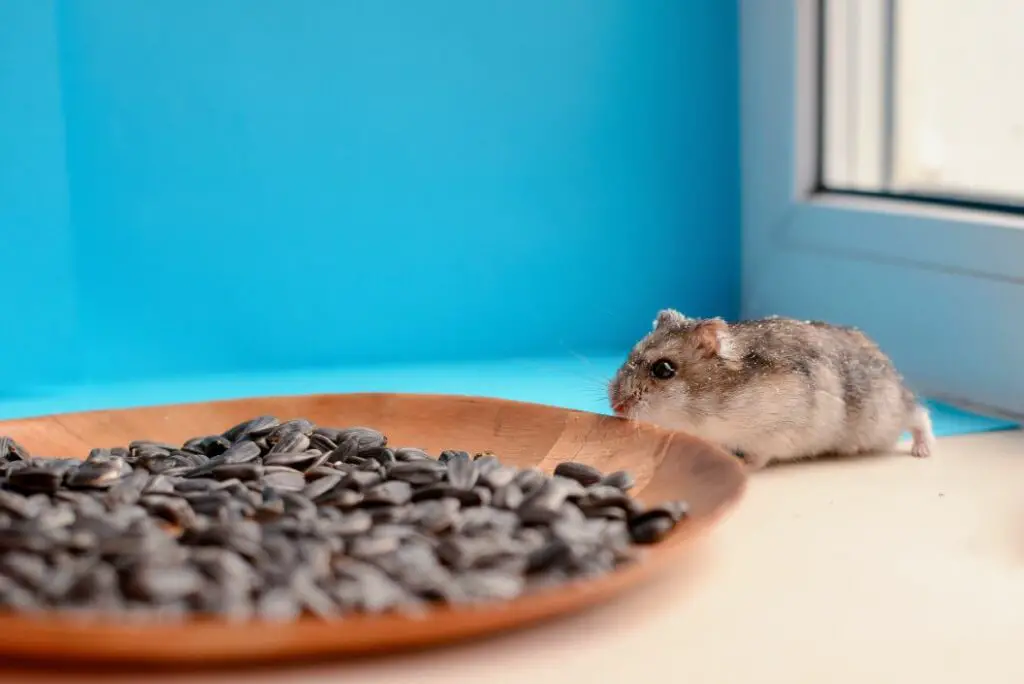As a veterinarian, I have had many experiences with hamsters and their owners. One of the most common questions that I get asked is what can hamsters die from.
In this blog post, I will be discussing the various factors that can contribute to a hamster’s death, including environmental factors, physical stressors, and emotional stressors.
I will also be providing tips on how to prevent hamster death and how to recognize the signs of distress in your hamster.

Hamsters and Environmental Factors
Hamsters are small creatures that are very susceptible to changes in their environment. As such, there are a few environmental factors that can contribute to a hamster’s death.
Can hamsters die from cold?
Yes, hamsters can die from being too cold. Hamsters are originally from the desert, so they are not used to cold temperatures.
If the temperature drops below 60 degrees Fahrenheit, it can be dangerous for a hamster. Signs that your hamster is too cold include shivering, lethargy, and a lack of appetite. If the temperature drops below 40 degrees Fahrenheit your hamster can enter a state of false hibernation called “Torpor”.
To prevent your hamster from getting too cold, make sure to keep their cage in a warm room and provide them with plenty of bedding to snuggle in.
Can hamsters die from heat?
Yes, hamsters can also die from being too hot. Hamsters are not able to regulate their body temperature very well, they don’t have the ability to sweat, so they can overheat easily.
Signs that your hamster is too hot include panting, lethargy, and a lack of appetite. To prevent your hamster from getting too hot, make sure to keep their cage out of direct sunlight and provide them with plenty of water to drink.
Can hamsters die from exhaustion?
Yes, hamsters can also die from exhaustion. Hamsters are very active creatures and they need plenty of exercise. However, if your hamster is not used to exercising, they can become exhausted very quickly. Signs that your hamster is exhausted include panting, lethargy, and a lack of appetite. To prevent your hamster from becoming exhausted, make sure to provide them with plenty of toys and opportunities to exercise.
Hamsters and Physical Stressors
In addition to environmental factors, there are also physical stressors that can contribute to a hamster’s death.
Can hamsters die from falling?
Yes, hamsters can die from falling. Hamsters are very small and fragile creatures, so even a short fall can be deadly.
To prevent your hamster from falling, make sure to provide them with a cage that is appropriately sized and has plenty of places for them to climb and play.
Hamsters and Emotional Stressors
Finally, there are emotional stressors that can contribute to a hamster’s death.
Can hamsters die from shock?
Yes, hamsters can die from shock. If your hamster is exposed to a sudden loud noise or bright light, they can become very stressed and go into shock.
Signs that your hamster is in shock include shallow breathing and a lack of responsiveness. To prevent your hamster from going into shock, make sure to keep their environment quiet and calm.
If your hamster does go into shock, they will most likely survive, but it can be fatal.
Can hamsters die from stress?
Yes, hamsters can also die from stress. Hamsters, like all animals, can become stressed if they are in an environment that is not suitable for them.
Signs that your hamster is stressed include biting or chewing on their cage, loss of appetite, and lethargy. To prevent your hamster from becoming stressed, make sure to provide them with a clean and healthy environment.
Preventing Hamster Death
To prevent hamster death, it is important to make sure that your hamster’s environment is safe and healthy.
How to ensure your hamster’s environment is safe and healthy
To ensure your hamster’s environment is safe and healthy, make sure to provide them with a cage that is appropriately sized and has plenty of places for them to climb and play. Also, make sure to keep their environment clean and provide them with fresh food and water every day.
How to recognize the signs of distress in your hamster
To recognize the signs of distress in your hamster, look for changes in behavior such as loss of appetite, lethargy, and biting or chewing on their cage. If you notice any of these signs, it is important to seek veterinary care.
When and how to seek veterinary care for your hamster
If you notice any signs of distress in your hamster, it is important to seek veterinary care as soon as possible. Your veterinarian can help you identify the cause of your hamster’s distress and provide appropriate treatment.
Wrapping up
In conclusion, there are many factors that can contribute to a hamster’s death, including environmental factors, physical stressors, and emotional stressors. Hamsters unfortunately die very easily.
To prevent hamster death, it is important to make sure that your hamster’s environment is safe and healthy, and to recognize the signs of distress in your hamster.
If you have any concerns about your hamster’s health or well-being, don’t hesitate to seek veterinary care. Remember, prevention is always better than cure.
- How Long Do American Eskimo Dogs Live? Important Factors and Care Tips - September 29, 2023
- Do American Bulldogs Need Grooming? Essential Tips and Care Guidelines - September 29, 2023
- Do Bengal Cats Enjoy Playing? Essential Tips for Keeping Them Active - September 29, 2023